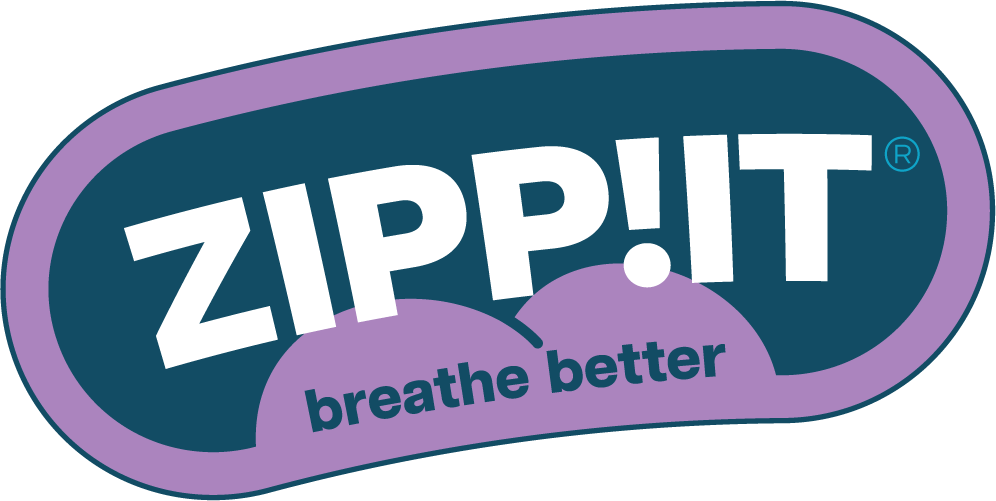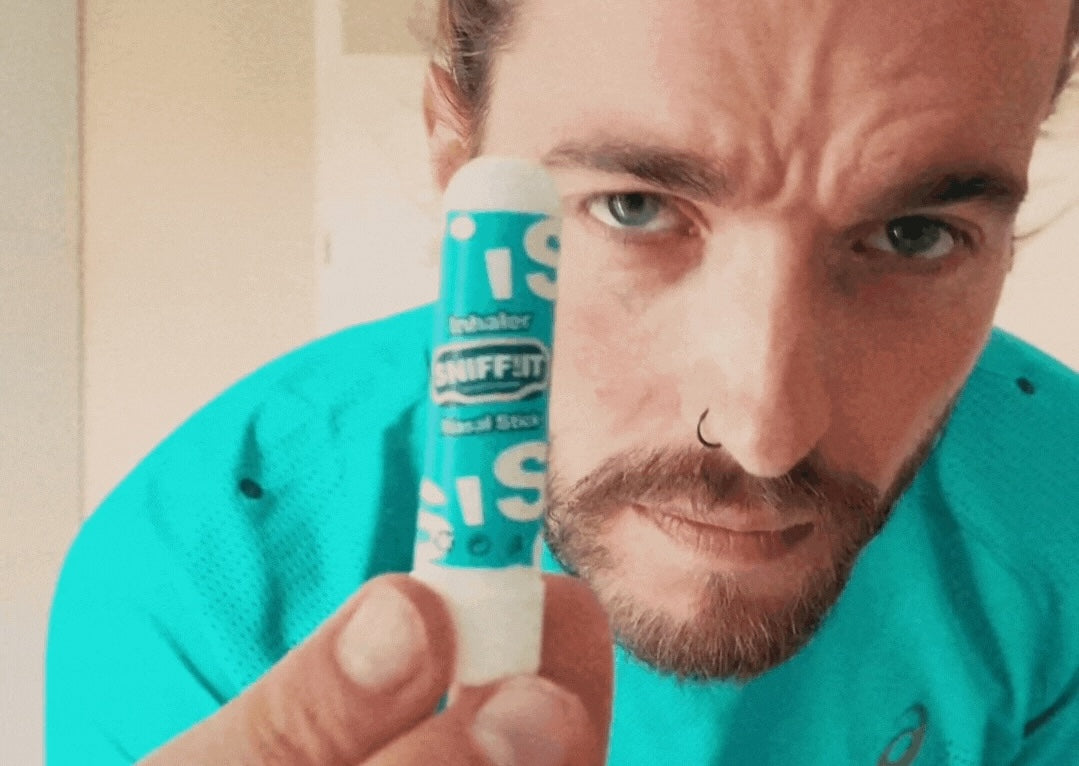Mouth breathing during sleep: how can you recognize it?
Mouth breathing during sleep is more common than you might think. About one in four adults regularly breathes through their mouth at night.
This habit may seem harmless, but it can have significant consequences for your health. From poor sleep quality to dental problems—the impact is greater than you might expect. Recognizing the symptoms is the first step toward a solution.
In this article, you’ll discover how to determine if you or your partner breathes through the mouth at night. We’ll discuss the causes, consequences, and — perhaps most importantly — what you can do about it. Whether you suffer from snoring, often wake up with a dry mouth, or are simply curious about your nighttime breathing pattern, this information will help you gain insight into this underestimated problem. Read on to discover why nasal breathing is so important and how you can improve your sleep quality.

What Is Mouth Breathing and Why Is It a Problem?
Mouth breathing is exactly what the term suggests: breathing through your mouth instead of your nose. Although this may seem harmless, our nose is actually designed to be our primary breathing organ.
When we breathe through our nose, the air is filtered, humidified, and warmed before it reaches our lungs. With mouth breathing, we miss out on these important functions. At night, nasal breathing is especially important. Breathing through your mouth can lead to:
-
Disturbed sleep quality
-
Increased risk of snoring and sleep apnea
-
Chronic dry mouth and sore throat
-
Higher risk of dental problems
-
Reduced oxygen intake
-
Impaired facial development in children
Research shows that mouth breathing can disrupt REM sleep—the phase in which our body and brain recover. This explains why people who breathe through their mouth often wake up tired, even after a full night’s sleep.
The problem is often underestimated because many people are unaware of their breathing pattern while sleeping. Yet, it is estimated that 30-50% of adults breathe through their mouth to some extent during the night. Causes range from temporary nasal congestion to anatomical abnormalities such as enlarged tonsils or a deviated septum. Allergies, asthma, and stress can also contribute to mouth breathing during sleep.
Recognizing Mouth Breathing: The Main Symptoms
Recognizing mouth breathing can be tricky, especially because it happens while you sleep. Fortunately, there are clear signals that may indicate it.
The most common signs of mouth breathing during sleep are:
-
Waking up with a dry mouth and throat: This is one of the clearest indications. The constant airflow dries out your mucous membranes, causing that sticky feeling upon waking.
-
Snoring: Although not everyone who snores necessarily breathes through their mouth, the two often go hand in hand. The sound is caused by the vibration of soft tissues in the throat.
-
Bad breath in the morning: A dry mouth promotes bacterial growth, which can lead to an unpleasant odor.
-
Drooling on the pillow: Ironically, mouth breathing can also lead to drooling, as your mouth remains open.
-
Frequent sore throat: Constant exposure to unhumidified air can irritate your throat.
A reliable way to confirm mouth breathing is to ask your partner if they’ve noticed you sleeping with your mouth open. You can also try the lip tape test: gently tape your lips together with special mouth tape and see if you can sleep comfortably. If this is difficult, it indicates mouth breathing.
In children, you often see other symptoms such as restless sleep, night sweats, bedwetting, teeth grinding, and daytime concentration problems. Early recognition is especially important in children, as mouth breathing can affect facial and jaw development.
Causes and Consequences of Mouth Breathing
Mouth breathing has several underlying causes. Most people don’t do it consciously—there is usually a physical obstruction or learned habit that maintains this breathing method.
Common causes include:
-
Nasal obstruction: A blocked nose due to a cold, sinusitis, or allergies is one of the most common reasons. If the nasal passage is blocked, the body automatically seeks an alternative route.
-
Anatomical factors: Such as enlarged adenoids or tonsils, deviated septum, nasal polyps, or narrow nasal passages.
-
Chronic conditions: Asthma, COPD, and allergic rhinitis can make nasal breathing difficult.
-
Dental problems: An overbite, underbite, or other dental abnormalities can make it hard to keep the lips closed.
The long-term effects of mouth breathing go beyond just a dry mouth. Research points to various health risks:
Disturbed oxygen intake leads to fatigue and concentration problems. A dry mouth increases the risk of tooth decay and gum disease. In children, prolonged mouth breathing can even lead to changes in facial structure.
An American study from 2022 showed that mouth breathers experience on average 20% less deep sleep than nasal breathers. This explains why they often wake up tired, even after sufficient hours of sleep.
Nasal Congestion and Mouth Breathing: A Vicious Cycle
Nasal congestion is one of the most common causes of mouth breathing. When your nose is blocked, you automatically switch to breathing through your mouth.
What many people don’t know: this can create a vicious cycle. Research shows that nasal passages can narrow after a period of disuse. The longer you breathe through your mouth, the harder it becomes to breathe through your nose again. Your nasal passages essentially become ‘lazy’.
Seasonal factors also play a role:
-
In spring and summer, pollen can trigger allergic reactions
-
During winter, colds and dry indoor air cause more nasal problems
-
Seasonal changes can worsen existing sinus issues
To break this cycle, there are several effective strategies:
Nasal rinsing with a saline solution can clean the nasal passages and remove mucus. A humidifier in the bedroom prevents drying of the nasal mucosa. Identifying and avoiding allergen triggers helps with seasonal allergies.
According to ENT specialists, it can take up to two weeks for the nasal passages to adapt to renewed nasal breathing. Patience and consistency are therefore important. The good news: the nose is highly adaptive. With the right approach, almost everyone can learn to breathe effectively through the nose again while sleeping.
Effective Treatments for Mouth Breathing
If you’ve determined that you breathe through your mouth while sleeping, there are fortunately several effective treatment methods available.
Self-help and lifestyle adjustments:
-
Breathing exercises: The ‘Buteyko method’ is specifically designed to train you to breathe through your nose.
-
Sleep mouth tape: Special tape that gently keeps your lips closed during sleep. Surprisingly effective according to research!
-
Adjusting sleep position: Sleeping on your side instead of your back can reduce mouth breathing.
-
Nasal rinsing: Cleaning your nasal passages with a saline solution before bedtime.
Medical treatments may be necessary if self-help methods are not sufficient:
Medications such as nasal corticosteroids, antihistamines, or decongestants can help, depending on the cause. Nasal strips pull the nostrils apart, keeping the nasal passages more open. In specific cases, surgical procedures may be needed, such as correcting a deviated septum or removing enlarged tonsils.
Treatment results are promising: 70% of patients with mouth breathing due to allergic rhinitis reported significant improvement after regular use of nasal corticosteroids. Sleep mouth tape reduced snoring and improved sleep quality in 78% of users in a 2021 study.
Patience is essential when treating mouth breathing. Your body may need time to adjust, especially if you’ve been breathing through your mouth for years. Most experts recommend following a treatment consistently for at least 30 days before assessing its effectiveness.

Prevention and Daily Habits for Nasal Breathing
Prevention is better than cure! By paying conscious attention to your daily habits, you can promote a healthy breathing pattern.
Daily habits that encourage nasal breathing:
-
Conscious breathing exercises, such as the 4-7-8 technique
-
Drinking enough water to keep mucous membranes hydrated
-
Reducing foods that can worsen nasal congestion
-
Regular physical activity with a focus on nasal breathing
-
Good nasal hygiene with regular cleaning
Your sleep environment plays a crucial role in healthy breathing. Keep humidity between 40-60%. Minimize allergens by washing bedding weekly and using hypoallergenic materials. Train yourself to sleep on your side and keep your bedroom cool (16-18°C).
Consistency is the key to success. Implementing these habits can, over time, lead to a natural preference for nasal breathing, even during sleep. Research shows it takes at least 21 days to form a new habit, so give yourself enough time.
The Path to Nasal Breathing: Your Action Plan
Now that you understand what mouth breathing is and how to recognize it, it’s time for a practical action plan. Switching from mouth to nasal breathing is a process that requires patience, but the health benefits make the effort more than worthwhile.
Start by evaluating your current situation. Keep a sleep diary and ask your partner if they’ve noticed you sleeping with your mouth open. Consider a sleep app that records sounds to detect snoring.
Consult a professional if you suspect underlying issues. Depending on your symptoms, this could be your GP, ENT specialist, dentist, or allergist. Research shows that early intervention significantly improves treatment outcomes.
Start with simple interventions such as daily breathing exercises, improved sleep hygiene, and nasal rinsing. Monitor your progress and adjust your approach as needed.
Most people see significant improvements in their breathing pattern within 30-60 days with consistent application of the right techniques. About 85% can significantly reduce or even completely resolve the problem.
The transition to nasal breathing during sleep is one of the most impactful changes you can make for your health. Start today with small steps and experience the difference for yourself!


